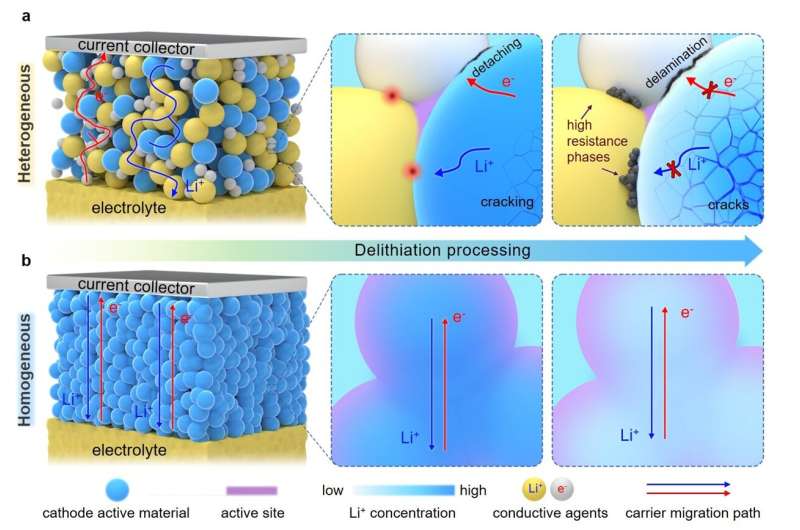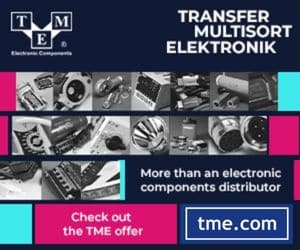Using a zero-strain, highly conductive material, this new approach removes the need for inactive additives. This results in a more efficient and stable battery with over 20,000 cycles and high energy density, significantly advancing energy storage technology.

Researchers at the Qingdao Institute of Bioenergy and Bioprocess Technology (QIBEBT) of the Chinese Academy of Sciences, along with collaborators from international institutions, have introduced a cathode homogenization strategy for all-solid-state lithium batteries (ASLBs). Tthis new approach enhances the life cycle and energy density of ASLBs, marking a significant advancement in energy storage technology. Current ASLBs face challenges due to heterogeneous composite cathodes that require electrochemically inactive additives to enhance conduction. These additives, while necessary, reduce the batteries’ energy density and cycle life due to their incompatibility with the layered oxide cathodes, which undergo substantial volume changes during operation.
The researchers have developed a solution: a cathode homogenization strategy using a zero-strain material, Li1.75Ti2(Ge0.25P0.75S3.8Se0.2)3 (LTG0.25PSSe0.2). This material exhibits excellent mixed ionic and electronic conductivity, ensuring efficient charge transport throughout the (dis)charge process without the need for additional conductive additives. The material shows specific capacity of 250 mAh g–1 and minimal volume change of just 1.2%. A homogeneous cathode made entirely of LTG0.25PSSe0.2 enables room-temperature ASLBs to achieve over 20,000 cycles of stable operation and a high energy density of 390 Wh kg−1 at the cell level. They claim that theircathode homogenization strategy challenges the conventional heterogeneous cathode design. By eliminating the need for inactive additives, they enhance energy density and extend the battery’s cycle life.This approach is a game-changer for ASLBs, the combination of high energy density and extended cycle life opens new possibilities for energy storage. The material’s stability and performance metrics make it a strong candidate for commercial applications in electric vehicles and large-scale energy storage systems.
This advancement is supported by extensive testing and theoretical calculations, confirming homogeneous cathodes’ electrochemical and mechanical stability. These analyses show no adverse chemical reactions or significant resistance increases after prolonged cycling. Beyond ASLBs, other battery types, including solid-state sodium batteries, lithium-ion batteries, lithium-sulfur batteries, sodium-ion batteries, and fuel cells, also face challenges with heterogeneous electrodes, which degrade overall battery performance.By addressing key challenges in ASLBs, this strategy sets a foundation for future innovations in energy storage technology. The team plans to explore the scalability of the LTG0.25PSSe0.2 material and its integration into practical battery systems. This work represents a significant milestone in battery technology and is expected to influence future research and development in energy storage.
“The commercialization potential for high-energy-density ASLBs is now more achievable,” added Prof. Cui Guanglei, head of SERGY. “Our universal strategy for designing multifunctional homogeneous cathodes can overcome the energy, power, and lifespan barriers in energy storage, paving the way for real-world applications.”







